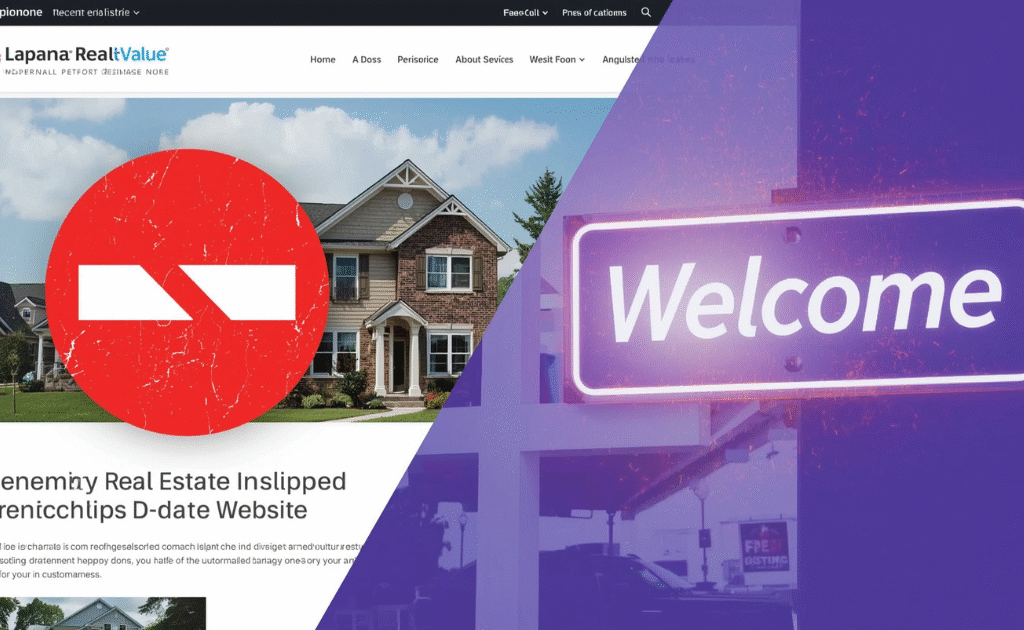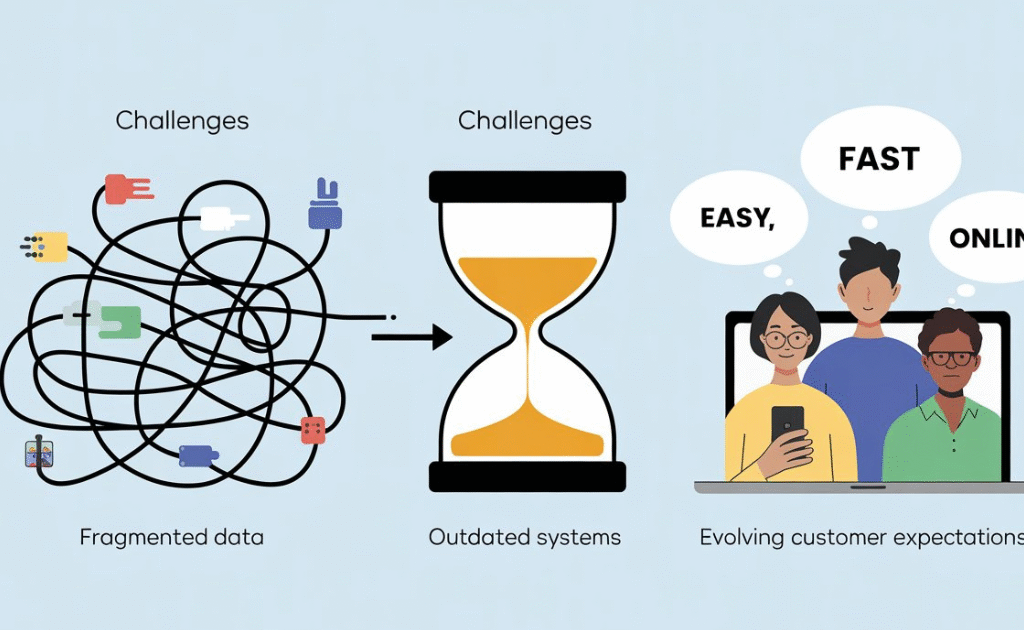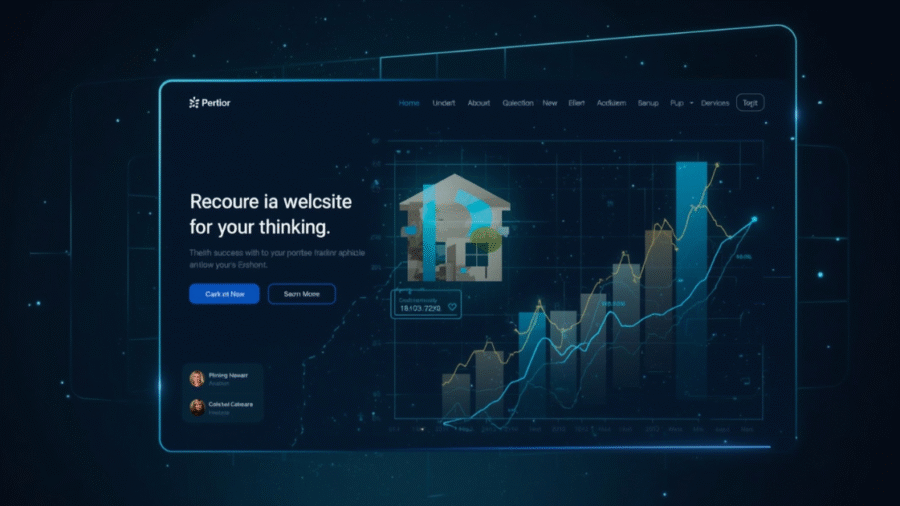Introduction: Your Digital Foundation in a Competitive Market
In today’s fiercely competitive real estate landscape, simply having an online presence is no longer enough. The digital world is where buyers and sellers first connect with properties and professionals, and their expectations are higher than ever. Consider this: a staggering 75% of users judge a company’s credibility based on its website design. An outdated, slow, or difficult-to-navigate website can instantly signal untrustworthiness, causing potential clients to look elsewhere before they even see your listings. This means missed opportunities and lost sales.
For real estate professionals, a fragmented or generic approach to online strategy is a recipe for stagnation. The ability to attract, engage, and convert leads hinges on a robust, strategically developed website that acts as your primary digital asset. This isn’t just about showcasing properties; it’s about building trust, demonstrating expertise, and providing an unparalleled user experience that sets you apart.
This guide will explore how strategic web development, combined with targeted SEO and dynamic digital marketing, can transform your online presence from a mere brochure into a powerful lead-generating machine. We’ll delve into the essential elements that make a real estate website truly impactful, address common challenges, and outline actionable strategies to ensure your digital footprint leads to tangible business growth.
Section 1: Your Digital Headquarters: Why a Custom Real Estate Website is a Must-Have

Your website is often the very first impression a potential client has of your brand. In real estate, where trust and professionalism are paramount, this first impression can make or break a deal.
Building Credibility and Trust from the First Click
As mentioned, a significant majority of users base their judgment of a company’s credibility on its website design. An outdated or unprofessional site can lead visitors to perceive your business as untrustworthy, causing them to leave before exploring your offerings. Conversely, a well-developed, modern, and intuitively designed website instantly establishes credibility, inviting users to explore with confidence. This foundational trust is crucial for all subsequent engagement and conversion efforts.
Unparalleled Control and Customization
Unlike templated or proprietary platforms that offer limited customization, owning your custom real estate website gives you complete control over every aspect of your online presence. This includes your branding, messaging, unique features, layout, and overall design. You’re not bound by standardized layouts or minor tweaks; you can tailor your site to perfectly reflect your brand identity and cater to your specific target audience. This level of control ensures your website truly represents your unique value proposition in the market.
Standing Out in a Crowded Market
In a sea of real estate agents, many of whom use “cookie-cutter” websites with identical content, standing out is key to being memorable. A custom-designed website immediately sets you apart from the competition, ensuring that your first impression is a positive and lasting one. This distinctiveness is vital for capturing attention and building a unique brand identity that resonates with clients.
The SEO Advantage: Ranking with Originality
A custom website allows you to implement a superior SEO strategy. When you create original and engaging content on your own domain, it’s significantly easier to rank on Google than with a generic site. Google values unique, high-quality content and may even penalize sites that feature duplicate content used across many other platforms. With your own site, you can continuously improve your SEO, knowing that your efforts contribute directly to your long-term online visibility and lead generation.
Section 2: Essential Features for a High-Converting Real Estate Website

Beyond aesthetics, a high-performing real estate website is equipped with features designed to engage visitors, provide value, and convert interest into leads.
Seamless IDX Integration
For real estate professionals, Internet Data Exchange (IDX) integration is non-negotiable. This feature allows you to display Multiple Listing Service (MLS) listings directly on your website, providing visitors with the most up-to-date property information. IDX integration keeps users on your site longer, significantly improves your SEO by providing fresh, relevant content, and positions your website as a comprehensive, one-stop-shop for home buyers.
Mobile Responsiveness: A Modern Imperative
With over 60% of web traffic in 2024 coming from mobile devices , mobile-friendliness is no longer optional; it’s a strategic imperative. If your website isn’t optimized for mobile, you risk alienating a significant portion of potential clients. A responsive design ensures your site functions seamlessly and appears well across all screen sizes, from smartphones to tablets, enhancing both user experience and search visibility.
High-Quality Visuals and Immersive Virtual Tours
In real estate, visuals are everything. High-resolution images, professional photography, and engaging videos are paramount for showcasing properties at their best. Beyond static images, integrating virtual tours and 3D walkthroughs allows potential buyers to explore properties from the comfort of their homes, expanding your reach to out-of-town buyers and increasing engagement. Tools like Styldod, My360, or WeboBook offer solutions for creating and embedding these immersive experiences directly into your site.
Strategic Lead Capture Forms
Your website is a powerful lead generation tool, and strategically placed lead capture forms are essential for converting visitors into valuable prospects. Include various types of forms, such as contact forms, home valuation requests, and newsletter sign-ups. Best practices dictate keeping forms short and simple, and offering value—like a free home evaluation or a market report—to encourage users to submit their information.
Building Trust with Testimonials and Reviews
Social proof is incredibly powerful in real estate. Showcasing positive client feedback, testimonials, and reviews prominently on your website builds trust and establishes your credibility. Highlight standout reviews on your homepage and dedicated testimonial pages to reinforce your reputation.
A Dynamic Blog or Resources Section
A blog or resources section is not just for SEO; it positions you as an industry expert and provides immense value to your audience. Create content about commonly searched topics, such as “First-Time Homebuyer Tips in [Your City]” , “How to Sell Your Home Fast in a Competitive Market” , or “Best Neighborhoods for Families in [Your Area]”. This type of content attracts targeted traffic, answers user queries, and keeps visitors coming back, ultimately helping to convert them into clients.
Non-Negotiable Security (SSL)
In an age of increasing cyber threats, a secure website is fundamental. Implementing an SSL-encrypted web page (HTTPS) is crucial for building customer trust and protecting sensitive user data, especially for transactions. Search engines like Google also prioritize secure sites, making security a vital SEO ranking factor.
Section 3: Navigating Real Estate Web Development Challenges

While the benefits are clear, the real estate industry faces unique web development challenges that require strategic solutions.
Fragmented Data and System Integration
Many real estate organizations struggle with data silos, where information is scattered across disparate systems like property management software, accounting platforms, and CRM databases. This fragmentation prevents a holistic view of operations and performance, often requiring manual aggregation and reconciliation, which is time-consuming and prone to errors. A well-developed website should serve as a central hub, capable of integrating with these systems to provide seamless data flow and a unified customer experience.
Overcoming Technological Disruptions and Outdated Systems
The real estate industry is undergoing a significant digital shift, but many companies find it challenging to modernize due to outdated systems, high upgrade costs, and a lack of in-house expertise. Clinging to outdated infrastructure leads to inefficiencies and can reduce tenant satisfaction and retention. Investing in modern web development means embracing new technologies that streamline operations and enhance the user journey, ensuring your business remains agile and competitive.
Meeting Evolving Customer Expectations
Today’s real estate customers expect speed, convenience, and digital accessibility like never before. They want to browse properties, book tours, and even sign leases online—without delays or paperwork hassles. Millennials and Gen Z, in particular, expect fast, mobile-friendly experiences, and platforms like Zillow and Airbnb have set high standards for convenience. Your web development strategy must prioritize these expectations, leveraging features like instant responses, personalized recommendations, and seamless online processes to attract and retain clients.
Ready to transform your real estate business with a powerful online presence? Click & Fill out the form to connect with our experts. Whether you’re looking for a custom website, advanced SEO strategies, or dynamic digital marketing campaigns, we’re here to provide a personalized consultation and help you unlock unparalleled growth and engagement in today’s competitive market. Connect Now
Conclusion: Your Agency’s Path to Unstoppable Digital Dominance
In the dynamic world of real estate, a strategic, well-developed website is no longer a luxury—it’s the cornerstone of sustained growth and engagement. By investing in a custom site that prioritizes credibility, user experience, and essential features like IDX integration and virtual tours, you establish a powerful digital headquarters.
Coupled with targeted SEO that leverages long-tail, high-intent keywords (e.g., “luxury beachfront homes for sale in Malibu” or “best real estate agent in [Your City]” ), your website becomes a magnet for qualified leads. Furthermore, integrating your web presence with broader digital marketing efforts—from engaging visuals to lead capture forms—transforms visibility into tangible conversions.
The real estate market is constantly evolving, and so too must your digital strategy. By proactively addressing challenges like data fragmentation and evolving customer expectations through modern web development, you position your agency as a forward-thinking leader. Embrace these strategies, continuously monitor your performance, and ensure your digital presence is as impressive and inviting as the properties you represent. This is your blueprint for not just ranking on Google, but for achieving unstoppable digital dominance in real estate.
